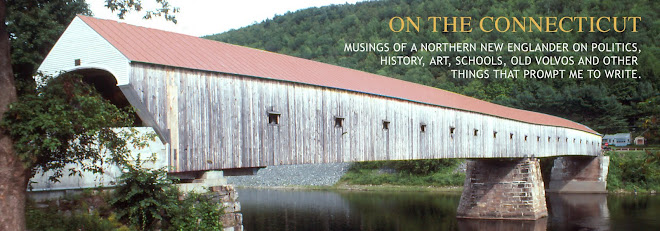There was a hermit known as Old Picard in our town when I was young. He lived in a ramshackle house on Proctor Hill that was nearly hidden behind piles of scrap lumber, cordwood, rusted metal odds and ends, broken tools and rabbit cages.
When you drove by in the summer, you’d see him working in a small garden next to the house or sitting on the porch in a broken-down old rocking chair. Everything was weathered gray, including Old Picard.
Adelard Picard was a French-Canadian lumberjack and stonemason. It was said that he could hand cut and stack three cords of wood a day in his prime. Now he was a gnarled and sinewy old man with a severe stoop, stringy gray hair and ragged clothing.
My grandfather was an attorney who had taken up woodcutting and farming in his retirement. He took me with him several times to have Picard fashion a handle for an ax or an adze. I was a little afraid of the raggedy, wild-looking old man, but my grandfather said that Picard’s handles were made by hands that knew the swing of the tool.
Sometimes my grandfather paid in cash. Other times he bartered for tobacco or other goods.
The two old gentlemen enjoyed swapping stories. You had to listen closely when Picard talked in his hoarse, gravely voice because his accent was thick and his expressions archaic.
Every year on Thanksgiving afternoon, my grandfather drove over to Picard’s house to bring him dinner. And every year, my grandmother made a big fuss about taking her good china. It was an annual event in their ritual bickering.
Picard would be in the kitchen in a tattered old easy chair. The room contained an old iron cookstove, a battered blue and white enamel-topped table and a couple of rickety kitchen chairs. It was filled with piles of newspapers and firewood, and there were rabbits everywhere. The house reeked of cigarettes, wood smoke and rabbits. It didn’t dawn on me until I was older, that Picard probably ate those rabbits.
Picard transferred the food to one of his plates. The two men chatted for a few moments, and then we left.
Years later when I was in college, I worked summers at Silver Lake State Park. The park manager, Mark Dutton, was an obstinate old-timer who ran the place like clockwork for years.
One summer, we needed some anchors for a new swimming raft. We loaded two large flat rocks that Mark had been saving just for that purpose into the back of his pickup truck. He explained how the flat rocks would sink into the mud at the bottom of the lake where the suction would hold them fast.
“You know Old Picard?” he asked me.
“Sure. I used to go there with my grandfather.”
“Well, you take these stones over there and ask him to drill a hole for an eye bolt through each one.”
“Picard?”
Mark gestured to the curved, fieldstone stairway that led up into the picnic area. It was a work of art.
“You see those stairs over there. Picard built them single-handedly.”
As I drove away, I wondered how one old man could move all those heavy stones into place. Some of them weighed more than two hundred pounds.
Picard was sitting on the porch in his rocking chair when I pulled up in front of his house. It had been years since I visited with my grandfather. Picard was even more stooped and unkempt than I remembered.
He looked me over suspiciously, then got out of his chair and walked over to the truck.
“Hello,” I said as I climbed out of the truck.
“What do you do with the stone?” he growled, glancing into the pickup bed.
“Mark Dutton said to bring these over and have you drill a hole through each one for those eye bolts.”
Picard didn’t respond. He examined the rocks with his crooked fingers. He picked up the long, heavy eyebolts.
“I used to come here with my grandfather,” I said nervously.
“Who?”
“Sam Spence.”
Picard’s face cracked into a thousand wrinkles. “He was a good man.”
I offered him a cigarette.
“You smoke the same ones,” he chuckled as he pulled a big wooden match from his shirt pocket and struck it on his thumbnail. I recognized the shirt. It was one of my grandfather’s old wool shirts. His hand trembled as he lit the cigarette.
I followed Picard through the piles of junk into a decrepit shed. He muttered how everyone had stolen all his good hammers and drills. He found an old sledgehammer, a file and some star drills. Back at the truck, he quickly and expertly sharpened the drills and then climbed up into the back.
“You hold the drill here,” he instructed, pointing to a spot near the middle of the first stone.
His hands still trembled as he picked up the sledgehammer. I moved away, holding the drill at arms length.
“Get closer,” he barked. “I won’t hit you”
Picard swung that hammer again and again, never hitting the drill even slightly off center. His aged muscles may not have been as strong as they once were, but they were just as accurate.
“Once it would take me half as long,” he apologized when he finished the first hole.
We stopped for another smoke. Picard regaled me with stories about logging in 19th Century Quebec. He told how he started working in a logging camp kitchen when he was twelve and later worked as a lumberjack and stonemason.
He described a long-ago world in another time… long cold Canadian winters away from civilization for months on end, trees a man’s height through the middle taken down with hand tools, and strong teams of oxen pulling huge logs through the snow.
Picard was proud of his work and the rugged lifestyle, but he complained that it had left him old and bent.
Then, he abruptly showed me where to position the drill on the other rock. Like the first one, he didn’t miss a blow. He finished the second hole and inserted the eyebolts.
“How much for the drilling,” I asked.
“Four dollars.”
“You sure that’s enough?”
“Four dollars,” he repeated.
I gave him the four bucks.
There was an awkward silence.
“Thank you,” I said as I turned to go.
When I opened the door to the truck, I remembered the carton of Chesterfields Mark kept in the glove compartment. I reached in, took out the open carton and handed it to Picard.
“That’ll save you a trip to the store,” I said as I slammed the truck door.
Picard smiled. “Your grandfather, he was a good man.”
I never saw Picard again.
A year or so later when I was away at college, Picard’s house burned down. Some townspeople got together and rebuilt it for him, but he died soon after. There is no trace of the house now.
According to Social Security records, Adelard Picard was born in 1878 and died in 1968. That means he was about 85 when he drilled the holes through those rocks in 1963.










